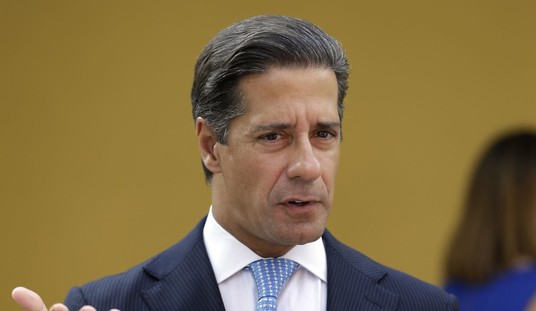This seems to be one of the more popular phrases popping up in both the State Department and the Justice Department these days: prosecutorial discretion. Even though the phrase seems fairly self-explanatory, here’s a quick definition:
Prosecutorial discretion refers to the fact that under American law, government prosecuting attorneys have nearly absolute powers. A prosecuting attorney has power on various matters including those relating to choosing whether or not to bring criminal charges, deciding the nature of charges, plea bargaining and sentence recommendation. This discretion of the prosecuting attorney is called prosecutorial discretion.
The reason the term is important is because it’s cropping up more and more in certain high profile cases inside the Obama administration. National Review’s Joel Gehrke comes up with the latest example and it involves none other than Lois Lerner. She was due for a meeting with some legal eagles after her hearings on the Hill, but that never came to pass. The decision to pass on the matter lands in the lap of Attorney General Loretta Lynch.
Justice Department officials used “prosecutorial discretion” to shelter former IRS official Lois Lerner from a grand jury after she was held in contempt of Congress.
“I believe that in the exercise of prosecutorial discretion, the matter was handled and was resolved,” Attorney General Loretta Lynch told the House Judiciary Committee on Tuesday morning.
The administration’s invocation of prosecutorial discretion has become familiar to lawmakers through the debate over President Obama’s recent series of executive orders on immigration, and it frustrates Republicans. Lynch’s answer particularly annoyed Representative Darrell Issa (R., Calif.), who led much of the investigation into the IRS’s Tea Party targeting scandal when he was chairman of the House Oversight and Government Reform Committee.
This exchange clearly had Issa feeling a bit on edge and he cited a bit of law which was intended to show that Lynch was falling down on the job. He read to her from the federal statute governing congressional contempt citations. It’s an interesting approach on his part. Here’s the relevant text. (Emphasis added)
Whenever a witness summoned as mentioned in section 192 of this title fails to appear to testify or fails to produce any books, papers, records, or documents, as required, or whenever any witness so summoned refuses to answer any question pertinent to the subject under inquiry before either House, or any joint committee established by a joint or concurrent resolution of the two Houses of Congress, or any committee or subcommittee of either House of Congress, and the fact of such failure or failures is reported to either House while Congress is in session or when Congress is not in session, a statement of fact constituting such failure is reported to and filed with the President of the Senate or the Speaker of the House, it shall be the duty of the said President of the Senate or Speaker of the House, as the case may be, to certify, and he shall so certify, the statement of facts aforesaid under the seal of the Senate or House, as the case may be, to the appropriate United States attorney, whose duty it shall be to bring the matter before the grand jury for its action.
I’ll have to pitch this one to the professionals, but it seems to be a rather exceptional set of circumstances under the law. In normal practice for criminal cases around the country, law enforcement gathers evidence to make the best case they can and turns it over to the District Attorney who may or may not bring the case to trial. Most commonly, if they find the case so weak that they’re pretty sure they’ll lose in front of a jury, they’ll just pass on prosecuting it. Nothing wrong with that, and it saves the taxpayers a lot of time and money in chasing cases which most likely can’t be won. If it’s a case involving someone they have a personal connection to they’re suppose to recuse themselves.
This statue, as it applies to Contempt of Congress, seems to be worded a bit differently. It clearly removes any options from the President of the Senate or the Speaker of the House in terms of certifying and processing the case by saying, “and he shall so certify.” Then, the appropriate United States Attorney – being somebody from the Justice Department – is told that it is their “duty” to bring the matter before a grand jury. Does this remove the option of just passing on the case? Did Lynch break the law?
For another case of prosecutorial discretion, reference Huma Abedin’s embezzlement case.








Join the conversation as a VIP Member